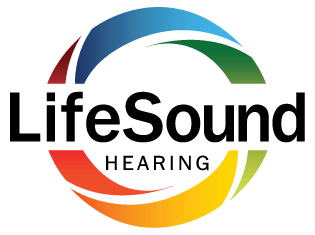
Over 466 million people around the world are impacted by hearing loss, making it the second most common condition on a global scale. With such frequency, it’s important to devote some attention to managing the risks associated with its development.
A person’s risk of experiencing hearing loss is influenced by a range of factors, including some that can be managed and others that are beyond their control. Identifying methods to decrease these risks is crucial for successful prevention.
What are the causes of hearing loss?
Assessing the danger of hearing loss calls for a comprehensive understanding of its complex and multifactorial characteristics. Whether stemming from noise exposure, ear infections, genetic predisposition, or other origins, the causes and forms of hearing loss exhibit significant variety. Because of this, the strategies to managing risks will differ based on the specific type of hearing loss being considered.
Main factors contributing to hearing impairment:
- Infections or Blockages: Basic ear infections or compacted earwax can cause short-term hearing loss, often remedied after the root issue is properly addressed.
- Noise damage: Prolonged exposure to loud noises can inflict significant and irreversible damage to the ears, especially impacting fragile hair cells in charge of sound perception. Injury to these cells can cause lasting loss of hearing, with the level of damage being associated with the severity of the injury endured.
- Trauma: Hearing loss can result from different types of trauma to the ear or brain. Examples include traumatic brain injuries contributing to tinnitus or burst eardrums resulting in hearing complications, emphasizing the significance of injury prevention.
- Age: Evidence suggests that age-related processes may contribute to specific types of hearing loss over time, though differentiating between age-related and activity-induced hearing gegradation remains challenging.
- People with hereditary or genetic conditions: Genetic predispositions may render particular people more vulnerable to hearing loss, particularly evident in children and infants. Additionally, adults demonstrating heightened sensitivity to noise damage might also contend with hereditary predispositions.
- Certain jobs that involve long-term exposure to high volumes of noise, including those in manufacturing facilities, building sites, and the music industry, raise the likelihood of hearing damage for employees.
- Recreational exposure to noise: Frequent exposure to harmful noise during leisure activities, such as going to concerts or listening to music at loud volumes, raises the possibility of hearing damage.
- Medication use: Certain medications, termed “ototoxic,” can induce hearing loss as a side effect, emphasizing the importance of healthcare providers in navigating the risks and benefits associated with medication use.
A combination of these factors can contribute to hearing loss progression, highlighting the complexity of risk assessment in this area.
Who is at high risk for hearing loss?
While everybody bears some amount of risk for hearing loss, certain groups face heightened susceptibility, including:
Prevention and early intervention is essential
In spite of differences in individual risk characteristics, all people are vulnerable to hearing loss to some degree. Mitigating these risks necessitates practical measures to safeguard hearing health and routine screenings for early detection and intervention.
People who are more susceptible to hearing damage should not become complacent but rather continue to take practical measures to protect their hearing. For example, consistent use of hearing protection in noisy workplaces or during recreational activities can considerably decrease the danger of hearing damage.
Ultimately, regardless of one’s baseline risk, practical steps can help minimize the likelihood of hearing loss and preserve auditory function for the future.
Call us today to schedule a hearing exam and discuss your personal threat.
